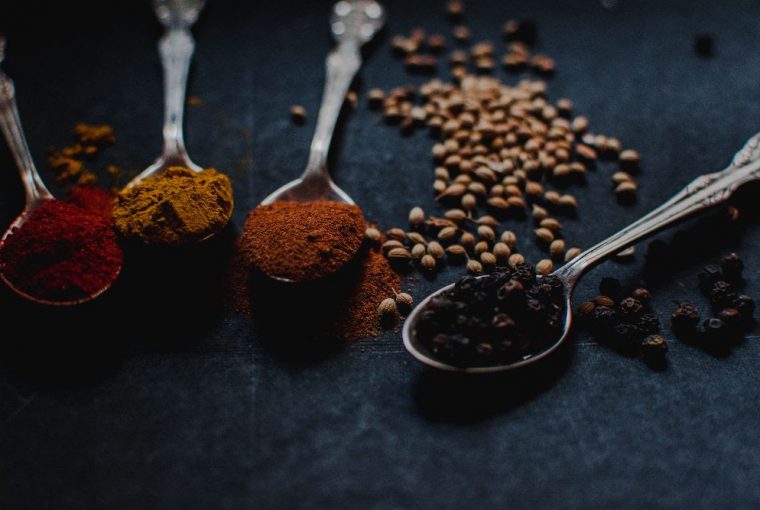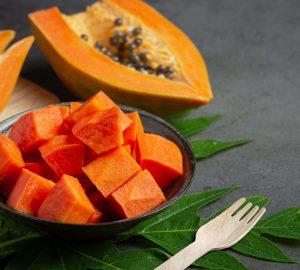We’ve briefly touched on the detrimental effects of inflammation in previous newsletters. Chronic inflammation is associated with almost all chronic diseases, including diabetes, Alzheimer’s disease, cardiovascular disease, cancer, and obesity. Inflammation is also elevated in individuals suffering from mental illnesses such as depression and anxiety. Certain anti-inflammatory foods can aid in preventing this.
However, inflammation in itself isn’t bad. Inflammation is a normal process that, in small amounts, helps the body heal. But chronic inflammation can be damaging and lead to health problems. Here’s how it works:
Inflammation is your body’s way of responding to physical, mental, and emotional stress. For example, during exercise, damage to your muscles elicits an inflammatory response and white blood cells repair the damaged tissues. The increased metabolic rate also produces reactive oxygen species, a normal by-product of metabolism. If you then take care of your body with good nutrition and sleep, you cue recovery and regeneration so your body can heal itself and get stronger. But if you don’t allow time for recovery and jump right into the next workout, you’ll end up in a chronic inflammatory state. You’ll be sick, injured, and unable to perform at your best.
The same principle applies to chronic stress. When in a state of stress, your sympathetic nervous system dominates and hormones like adrenaline and cortisol are dumped into the bloodstream. This leads to a cascade of events including increased heart rate and blood pressure, increased energy supply, and an increase in immune activity. These are all beneficial as your body is trying to increase your chance of survival, or boost your performance before a test or presentation. However, if you’re perpetually in a state of stress, this leads to chronic inflammation.
Unfortunately, poor diet, stress, and other lifestyle factors such as smoking and low physical activity, has led to an epidemic of chronic inflammation and associated diseases. Whether it’s exercise, stress, or other lifestyle factors, you need to manage inflammation to make sure that it’s not damaging your body. Remember, inflammation isn’t bad, provided you allow the recovery process to occur.
Managing inflammation can be done by getting proper sleep, decreasing stress, and prioritizing recovery. You can also decrease inflammation through proper nutrition. Here are some simple food guidelines to follow to help you decrease systemic inflammation and help you recover, heal, and get healthier by eating anti-inflammatory foods:
1. Replace sauces with spices. Move away from sauces that have a lot of added sugars and preservatives and move toward using spices to flavour your food. Spices like turmeric, ginger, garlic, and cinnamon have incredible flavours and anti-inflammatory properties.
2. Healthy fats. Eat healthy fats such as fatty fish, nuts and seeds, plant oils, avocados, coconut, eggs, and grass-fed meat. Prioritize omega-3 fatty acids in particular, which are found in fatty fish such as sardines, mackerel, trout, and salmon, and seeds such as flax and chia. Avoid trans fats at all costs, which are found in packaged foods, such as baked goods, crackers, fried foods, margarine, and vegetable shortenings. Trans fats are inflammatory and associated with chronic diseases.
3. Fruits and vegetables. One of the benefits of fruits and vegetables is that they are full of antioxidants. Excessive oxidation of molecules in the body can affect their structure and function (oxidative stress). Antioxidants are substances that prevent and heal tissue damage, thereby reducing inflammation. While both fruit and vegetables have important properties, make sure you’re having mostly vegetables and a little bit of fruit, due to the sugar content in fruit.
4. Avoid processed foods like processed meats, fried foods, and margarine, and high-sugar foods like syrups, candy, junk foods, cereal, fruit juice, pop, foods with added sugars, and refined carbohydrates. These are the most common dietary contributors to inflammation.
We know that there’s been a lot of nutrition information lately and sometimes it can be overwhelming! The most important thing to remember is to eat a balanced diet of whole, non-processed foods. Simply, eat a variety of anti-inflammatory foods that you recognize as foods. This will ensure you take in a high density of nutrients to help reduce inflammation, decrease your risk of developing chronic diseases, and help you feel awesome.
AUTHOR BIO
Greg Wells is the CEO and founder of Wells Performance, a global consulting firm on a mission to elevate how we live our lives at work and in life. He has worked with some of the highest-performing individuals on the planet, including Olympic and world champions and elite organizations including General Electric, BMO, Deloitte, KPMG, BMW, Audi, Sysco Foods, YPO and Air Canada. He is also committed to inspiring children and young adults, working with school boards and independent schools around the world.




